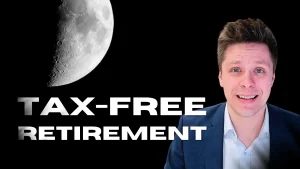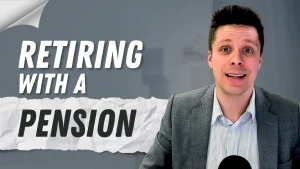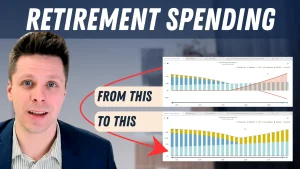[vc_row css=”.vc_custom_1612380408194{padding-top: 20px !important;padding-bottom: 20px !important;}”][vc_column][vc_video link=”https://youtu.be/rLE1W8oh4X4″ css=”.vc_custom_1704404291299{padding-top: 20px !important;padding-bottom: 20px !important;}”][vc_column_text css=”.vc_custom_1704405016772{padding-top: 20px !important;padding-bottom: 20px !important;}”]Should you be buying GICs at these rates? We’re seeing rates that we haven’t seen in years, with one-year GICs paying as much as 5.41%.
This is the number one question we are receiving from our clients. No joke, I’ve probably had this question 10 times over the last two weeks, so what are they doing?
Well, there are a few things that we need to take into consideration: your timeline, GIC rates, taxes, inflation, and your alternative options.
The issue with GICs
Traditionally, the issue with GICs has been that their returns have been negative after factoring in taxes and inflation. But is that still an issue with GIC rates being higher than they’ve been in years?
Let’s say you buy a one-year GIC today for $100,000 at a rate of 5.40%
After one year, your $100,000 would have grown to $105,400.
Taxes
Assuming this GIC wasn’t purchased in a registered account like an RRSP or TFSA, you will need to pay income tax on the $5,400 you received in interest.
Assuming you’re in a 30% tax bracket, that’s an income tax bill of $1,620.
This lowers your net return to just under $3,800 ($3,780)
Inflation
We also need to factor inflation into the net return. Prices of goods go up over time, and as we’ve seen in the grocery store, the price of eggs has been on an absolute tear.
The last Statistics Canada release for October 2023 had overall inflation at 3.1%. This encompasses all types of goods in the Canadian economy, but if we narrow in on things most people spend on, like food, inflation was at 5.6%.
Assuming we use an inflation rate of 5.6%, you need your $100,000 to grow to $105,600 to keep up with rising prices. After factoring in inflation of $5,600, your purchasing power has dropped to $98,180, or a loss of 1.82% on the year.
Even with higher rates, GIC returns are still negative after factoring in taxes and inflation.
Does that mean you should avoid buying GICs at these rates?
Well, not necessarily.
This depends on your timeline.
If you need money within the next five years, GICs are a great option as you don’t want to go through any volatility, and you want to guarantee what you’re going to get.
If you don’t need the money for at least five years, then I would say there are better investment options.
Alternative investment options
An alternative to GICs would be to invest in the stock market. For the majority of retirees, they wouldn’t be investing fully in the stock market so a balanced portfolio of 60% stock and 40% conservative investments would be a better comparison.
The benefit of having a portion of your portfolio invested in the stock market is that, in the long run, you should earn a return that outpaces inflation and taxes.
Having said that, even with a balanced portfolio, there will be fluctuations in your annual returns.
Because of these fluctuations, you don’t want to invest money that you’re going to need over the next five years, as you might be forced to draw from your portfolio while it’s down in value.
By giving yourself five years, investing in a balanced portfolio makes sense because you will have time to recover from any down years. In fact, if we look at 5-year rolling returns from January 1935 to Dec 2021, there has never been a 5-year period where the return on a balanced portfolio has been negative.
Summary
If you need money over the next five years, I don’t mind losing a little purchasing power by buying a GIC, as you want that money to be there. If you don’t need the money for five years, then there are better investment options available.
A Personalized Approach to Retirement Planning
To take control of your retirement finances and optimize your tax savings, click here to access our retirement withdrawal questionnaire. It takes just five minutes, and you’ll receive a personalized video from me with strategies tailored to your unique situation.
[/vc_column_text][/vc_column][/vc_row]





